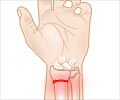Athletes should think twice before consuming a high-fat diet, suggest a new research by Oxford University.
A new research conducted at Oxford University has suggested that athletes should think twice before consuming a high-fat diet.
A team found rats on fatty diets saw a reduction in physical stamina and declining mental performance after just nine days.The research, funded by the British Heart Foundation and published in the FASEB Journal, may have implications not only for those eating lots of high-fat foods, but also athletes looking for the optimal diet for training and patients with metabolic disorders.
"We found that rats, when switched to a high-fat diet from their standard low-fat feed, showed a surprisingly quick reduction in their physical performance," says Dr Andrew Murray, who led the work at Oxford University and has now moved to the University of Cambridge.
"After just nine days, they were only able to run 50 per cent as far on a treadmill as those that remained on the low-fat feed," the expert added.
High-fat diets are known to be harmful in the long term and can lead to problems such as obesity, diabetes and heart failure. They are also known to be associated with a decline in cognitive ability over long time spans. But little attention has been paid to the effect of high-fat diets in the short term.
Physical endurance - how long we can keep exercising -depends on how much oxygen can be supplied to our muscles and how efficiently our muscles release energy by burning up the fuel we get from the food we eat. In particular, using fat as a fuel is less efficient than using glucose from carbohydrates, but the metabolic changes induced by different diets are complex and it has been controversial whether high-fat feeding for a short time would increase or decrease physical performance.
Advertisement
All 42 rats were initially fed a standard feed with a low fat content of 7.5 per cent. Their physical endurance was measured by how long they could run on a treadmill and their short-term or 'working' memory was measured in a maze task. Half of the rats were then switched to a high-fat diet where 55 per cent of the calories came from fat.
Advertisement
"With the standard feed, 7.5 per cent of the calories come from fat. That's a pretty low-fat diet, much like humans eating nothing but muesli," says Murray.
"The high-fat diet, in which 55 per cent of the calories came from fat, sounds high but it's actually not extraordinarily high by human standards. A junk food diet would come close to that.
"Some high-fat, low-carb diets for weight loss can even have fat contents as high as 60 per cent. However, it's not clear how many direct conclusions can be drawn from our work for these diets, as the high-fat diet we used was not particularly low in carbs," he added.
On the fifth day of the high-fat diet (the first day back on the treadmill), the rats were already running 30 per cent less far than those remaining on the low-fat diet. By the ninth day, the last of the experiment, they were running 50 per cent less far.
The rats on the high-fat diet were also making mistakes sooner in the maze task, suggesting that their cognitive abilities were also being affected by their diet. The number of correct decisions before making a mistake dropped from over six to an average of 5 to 5.5.
Source-ANI
TAN














